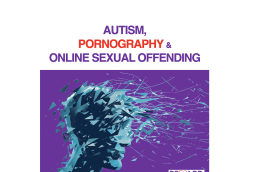Artists have a vital role to play in reflecting contemporary culture. Today that often means referencing ubiquitous pornography. However very few artists appear to be aware of the deeper impact of internet pornography on the brain.
As a result The Reward Foundation was delighted to receive an invitation to speak at a debate at the Royal College of Art in London on 31st May 2016 on the subject of “Your Brain on Porn”. The debate was part of a series called Red Tape and initiated by a young up-and-coming Israeli artist called Gilad Visotsky.
Gilad had found that while researching for his MA dissertation entitled The Click Trap, that his pro-porn views began to change. So much so that he himself decided to give up watching porn. He said he had been particularly influenced by Gary Wilson’s TEDx talk, The Great Porn Experiment. To his delight he found that bouts of deep depression disappeared, to be replaced with improved concentration, happier moods and more creativity. He added…
“I see a lot more serious and driven women around me than men. While they get on and do well we often seem to lack the drive. I am thirty years old and I think this applies to men around my age and to younger ones in particular. I wondered why that should be. I think that if masturbating to online porn has a part to play in it then we should explore that and make people more aware of how a PMO habit might be affecting them.”
Ken Hollings, tutor at the college, writer and occasional broadcaster on BBC Radio 3 and 4 chaired the event. In addition to Mary and Darryl, the two other panelists were Roxanne Gatt, from Malta and Janine Schroff, from India, both feminist artists who deplore the current mainstream porn that is extremely misogynistic. They were promoting instead a feminist style of art. The audience consisted of a diverse range of around 30 artists including a former porn actor. More than half contributed to the debate in a lively way. The Facebook feed is here.
None was aware of the impact of porn on the brain with its tendency to cause escalation to illegal porn including child pornography. Porn also has a role in a range of mental health issues such as depression, social isolation, social anxiety and brain fog. Porn-induced erectile dysfunction in increasing numbers of men, along with more signs of behavioural addiction. Despite some outrage that porn could be in any way be harmful, it was agreed that given the choice between 2 otherwise equally attractive potential lovers, one who had a porn habit and one who didn’t, the one without was to be preferred. Having authentic connection is still the number one choice when compared to being with someone who just wants to act out the porn tapes they are rerunning in their head.




